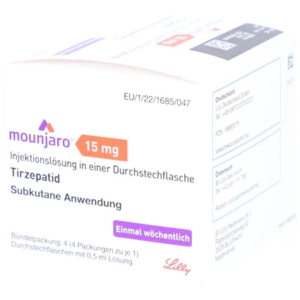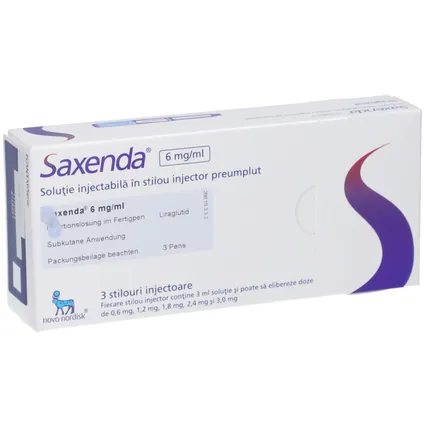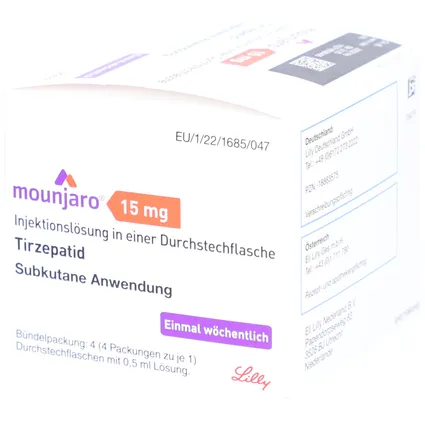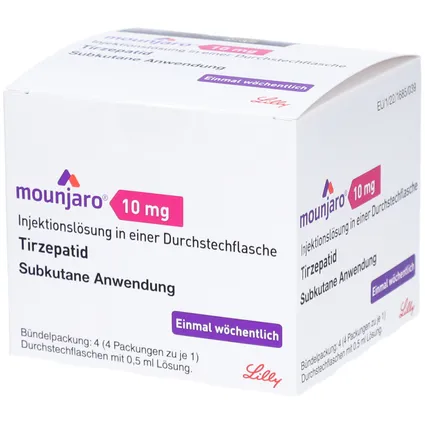Subtotal: 327.59$
Buy Ozempic® 0.5 mg Injection for Weight Loss & Type 2 Diabetes
214.76$
Ozempic® 0.5 mg
Pack size: 3 pcs
Active ingredients
2 mg semaglutide (S.cerevisiae); (0.5 mg per dose)
Excipients
Water for injection
Sodium hydroxide for pH adjustment
Hydrochloric acid for pH adjustment
Disodium hydrogen phosphate-2-water
Phenol
Propylene glycol
Product Description
Ozempic® 0.5 mg: Effective Management for Type 2 Diabetes with Semaglutide
What is Ozempic (Semaglutide)?
Ozempic, containing the active ingredient semaglutide, is a prescription medication specifically designed for adult patients with type 2 diabetes. It belongs to a class of drugs known as GLP-1 receptor agonists, which help control blood sugar levels and reduce the risk of long-term diabetes-related complications. While Ozempic is primarily prescribed for blood glucose control, it has gained significant attention for its off-label use in weight loss. However, it’s important to understand that Ozempic is not approved for weight management by regulatory authorities.
For those struggling with type 2 diabetes, Ozempic injections provide an effective and easy-to-use option for managing blood sugar levels over the long term. Available in a convenient pen injection form, Ozempic is often a go-to solution for individuals looking for better diabetes management.
Available Dosage Forms of Ozempic
Ozempic is available in multiple strengths, making it adaptable to various patient needs. The pre-filled Ozempic pen delivers a precise dosage, ensuring ease of use and consistent blood sugar control. The strengths available include:
- 2 mg/3 mL pen, delivering 0.25 mg or 0.5 mg per injection
- 4 mg/3 mL pen, delivering 1 mg per injection
- 8 mg/3 mL pen, delivering 2 mg per injection
The Ozempic 0.5 mg pen is particularly popular among patients initiating treatment for type 2 diabetes, providing an excellent starting dose.
How Does Ozempic (Semaglutide) Work?
The primary ingredient in Ozempic, semaglutide, functions as a GLP-1 receptor agonist. GLP-1 is a naturally occurring hormone that assists in regulating blood sugar levels. By mimicking the action of GLP-1, semaglutide helps to increase insulin production when blood sugar levels are high, particularly after meals. This enhances the body’s ability to manage postprandial blood glucose spikes.
In addition to its role in boosting insulin secretion, semaglutide reduces glucagon levels (a hormone that raises blood sugar) and slows gastric emptying, meaning it delays how quickly food leaves the stomach. This results in improved control of blood glucose levels after eating, making Ozempic a highly effective medication for diabetes management.
Key Benefits of Ozempic for Type 2 Diabetes
- Better Blood Sugar Control
Ozempic for diabetes is proven to be effective in lowering HbA1c levels, a key marker used to measure long-term blood sugar control. Many patients on Ozempic have experienced significant reductions in their HbA1c levels, improving overall health and reducing the risk of diabetes-related complications. - Weight Loss as an Additional Benefit
While not approved specifically for weight management, many users of Ozempic have reported modest weight loss. This is due to its effect on appetite suppression and delayed gastric emptying. As such, Ozempic for weight loss has become an attractive option for individuals struggling with type 2 diabetes and obesity. - Convenience and Ease of Use
With once-weekly dosing, Ozempic provides a convenient alternative to daily diabetes medications. The Ozempic pen is simple to use and can be administered at home, making it ideal for long-term therapy. - Reduced Cardiovascular Risk
Beyond glycemic control, studies have shown that Ozempic can reduce the risk of major cardiovascular events, such as heart attack and stroke, in patients with type 2 diabetes. This makes Ozempic for diabetes not only a tool for managing blood sugar but also for improving heart health.
Proper Use of Ozempic (Semaglutide)
The Ozempic pen is designed for subcutaneous injection and should be administered once a week, at the same time each week. Patients are typically started on a 0.25 mg dose, which is gradually increased to 0.5 mg or higher, depending on their healthcare provider’s guidance. It’s crucial to follow the prescribed dosage and consult a healthcare provider regularly to monitor progress.
When injecting Ozempic, patients should alternate the injection site between the abdomen, thigh, or upper arm to prevent skin irritation. The pen should never be shared with anyone, even if the needle is replaced.
Common Side Effects of Ozempic
As with any medication, Ozempic can cause side effects. The most common ones include:
- Nausea
- Vomiting
- Diarrhea
- Constipation
- Stomach pain
Most of these side effects are mild and tend to subside as the body adjusts to the medication. However, more serious side effects such as pancreatitis or severe allergic reactions may occur in rare cases. Patients should monitor for symptoms such as persistent abdominal pain or difficulty breathing and seek medical attention if needed.
Who Should Avoid Using Ozempic?
Ozempic is not suitable for everyone. Patients with a history of certain medical conditions should avoid using this medication. These include:
- A personal or family history of medullary thyroid carcinoma (MTC)
- Multiple endocrine neoplasia syndrome type 2 (MEN 2)
- Severe gastrointestinal disorders, such as gastroparesis
- Pregnant or breastfeeding women
Before starting Ozempic, patients should provide their healthcare provider with a complete medical history to ensure the drug is appropriate for their condition.
Where is Ozempic Approved?
Ozempic has been approved by major health authorities globally for the treatment of type 2 diabetes. These include:
- FDA in the USA
- EMA in the European Union
- Health Canada
- PMDA in Japan
- TGA in Australia
While Ozempic for weight loss has become increasingly popular, regulatory agencies like the FDA and EMA have not yet approved it for this indication.
Conclusion: Should You Consider Ozempic?
For individuals with type 2 diabetes, Ozempic offers an excellent option for improving blood sugar control, reducing cardiovascular risks, and promoting weight loss as a secondary benefit. Its once-weekly dosing and easy-to-use pen injection make it convenient for long-term management.
However, patients should consult with their healthcare provider to determine whether Ozempic is the right choice, considering its potential side effects and suitability based on their personal medical history.












